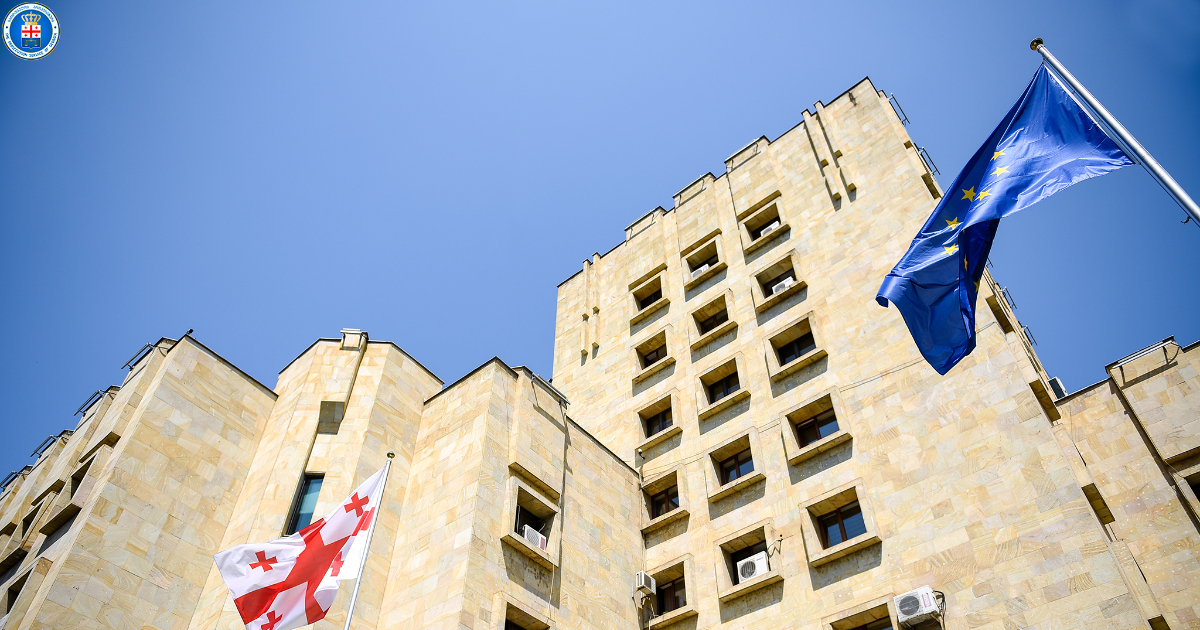Analyst: Visa liberalization suspension will harm Georgia’s image and create problems for its citizens

Author
Front News Georgia
Discussions among politicians and analysts about the potential suspension of Georgia’s visa liberalization with the European Union have become increasingly frequent. Especially now, as there is a likelihood that Brussels could gain leverage to more easily suspend visa-free travel for a third country.
The Georgian government claims that the EU needs this tool to apply pressure on third countries, particularly on Georgia, where attempts to use such leverage have long been evident. The opposition, on the other hand, argues that the government’s missteps have brought the country to this dangerous point.
How real is the threat of suspending visa liberalization for Georgia, and what kind of damage could it cause the country and its citizens? Giorgi Melashvili, founder of the European-Georgian Institute and visiting lecturer at Free University, discussed these issues and more in an interview with Front News.
– The government openly says that even if visa liberalization is suspended, it should not be considered a catastrophe and that the country could manage without it, just as it did before. Why do you think this topic has recently become more active in government discourse?
– Let’s clarify that visa liberalization is not a reward or a specific achievement solely linked to the ruling Georgian Dream party. It was a very long process, beginning in the 1990s, developing further in 2010–2011, and ultimately culminating during Georgian Dream’s administration. Thus, it is a product of generations of Georgian diplomacy and is not tied to any single political force. It was a collective effort by diplomats and officials at various levels.
As for the risks of revoking visa liberalization, this is not a new threat. We’ve been hearing warnings for a long time. Georgian Dream received enormous political capital from the EU, notably the granting of candidate status, despite failing to meet the full set of criteria required. This was a recognition of the Georgian people’s European aspirations, not of the government’s merits.
Instead of implementing reforms, the government continued to make numerous anti-Western statements, passed controversial laws, and committed election violations and violence against demonstrators. Against this backdrop, the EU clearly stated that the accession process would stall if such trends continued, and visa liberalization could be at risk.
– Do you think the government might have already received private warnings from European partners about visa liberalization suspension, meaning the threat is even more serious than publicly acknowledged?
– It’s possible. However, the EU has also warned openly on multiple occasions. The European Council has issued several statements urging the Commission to monitor the situation in Georgia. Individual EU countries have even imposed targeted sanctions. When assessing these risks, it’s important to consider not only Georgia’s internal situation but also the broader European context.
The EU, in general, is becoming stricter on migration. The era of open migration policies, prominent under Angela Merkel and partly under Olaf Scholz, is ending. Migration policy is tightening across Europe. Thus, when the EU adds human rights considerations to visa policies, it applies not just to Georgia but to other countries as well. However, given the scale of human rights violations in Georgia, this issue could become the main trigger for suspending visa liberalization.
– Some EU countries, particularly in the Baltic states, frequently call for a reassessment of visa liberalization with Georgia. Meanwhile, Georgia has allies like Hungary that seem to block such decisions. But do you think more countries will eventually support suspending visa-free travel with Georgia? What risks does this simplified suspension mechanism pose for Georgia?
– Unfortunately, these risks will persist until the government in Tbilisi fully understands the consequences of its political actions. Ultimately, the ability and political will to prevent this and to keep the Schengen zone open to our country lie with Tbilisi and the government there. The European Union is currently doing everything it can to delay making a decision, but how long this will continue remains uncertain. In addition to the Baltic countries, a broad coalition is needed to make such a decision. So far, this has not happened because the EU has not yet exhausted all sanctioning mechanisms. While Hungary currently helps Georgian Dream block certain decisions at the EU level, more individual countries are joining targeted sanctions initiatives.
Moreover, even Hungary’s veto power has limits. We saw this during decisions related to Ukraine, where Viktor Orbán was eventually persuaded to leave the room to allow consensus. Therefore, while Brussels holds the tool to suspend visa-free travel, the critical factor remains the Georgian government’s behavior. If Georgian Dream shifts away from its anti-democratic and anti-European course, visa liberalization will not be threatened.
– What kind of damage would Georgia and its citizens suffer if visa liberalization is indeed suspended? How does visa-free access to the Schengen Area benefit Georgian citizens?
– The suspension of visa liberalization would cause two major problems for Georgia’s citizens. First, there would be practical communication barriers — people would once again need to apply for visas, a process requiring numerous documents, simply to visit family or friends in Europe. Second, and even more seriously, there would be reputational damage. Georgia is an EU candidate country. If visa-free travel is revoked, it would send a very negative signal to our Western partners, suggesting that Georgia is drifting away from Europe and becoming more dependent on Russia.
Additionally, citizens would lose easy access to healthcare opportunities, and Georgian businesspeople would find it much harder to manage their activities in Europe. Restoring access would require obtaining visas again.
Ultimately, revoking visa liberalization would harm both the country’s image internationally and create numerous day-to-day problems for ordinary citizens.
By Elza Paposhvili
Tags:





